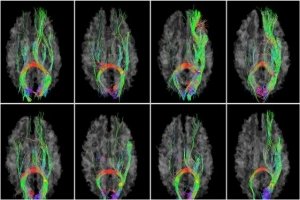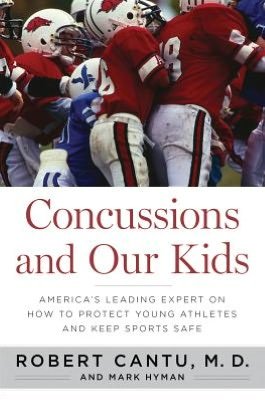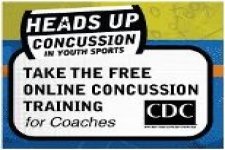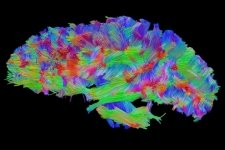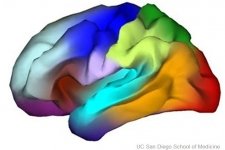Progesterone seems to protect neurons after injury
- Created on Monday, 25 June 2012 18:32
- Last Updated on 16.01.2013
- Published Date
It is not yet known why girls suffer concussions at a higher rate than boys. The most prevalent theories range from lesser neck and upper body strength, to better reporting among females, to hormonal differences. Researchers at Emory University in Atlanta are currently in the third phase of a clinical trial designed to determine if the hormone progesterone, normally associated with female reproductive processes, can protect damaged neurons. Administered within four hours of the injury and lasting for three days, results of the treatment have been positive so far.
Although catastrophic injuries in sports are rare, the question regarding applicability of a related treatment for concussion remains open.
Pilot study highlighted efficacy
Every 15 seconds, someone in the United States sustains a significant traumatic brain injury. Approximately 2 million adults and children in the United States suffer from traumatic brain injuries each year - leading to 50,000 deaths and 80,000 new cases of long-term disability, according to the Centers for Disease Control and Prevention. Despite the enormity of the problem, scientists have failed to identify effective medications to improve outcomes following a traumatic brain injury.
Emory researchers, however, concluded in an earlier pilot clinical trial that giving progesterone to trauma victims shortly following brain injury appears to be safe and may reduce the risk of death and long-term disability. Their previous three-year study, called ProTECT I (Progesterone for Traumatic brain injury--Experimental Clinical Treatment), enrolled 100 participants at Grady Memorial Hospital. It was designed to evaluate whether progesterone can be administered intravenously in a safe and reliable way.
"We found evidence that progesterone is not only safe for use in patients suffering from traumatic brain injuries," says Wright. "We also found a 50 percent reduction in mortality in those patients treated with progesterone. Even though this was a small pilot study, we found signs that progesterone improved functional outcomes and reduced disability in patients with moderate brain injury.
"By expanding our test sites to 17 major trauma centers across 15 states and enrolling more than 1,000 patients, we hope to confirm these preliminary findings and determine if progesterone benefits victims of acute traumatic brain injury," says Wright.
Progesterone common in males and females
Progesterone is naturally present in small but measurable amounts in the brains of males and females. Human brain tissue is loaded with progesterone receptors. Laboratory studies suggest that progesterone is critical for the normal development of neurons in the brain and exerts protective effects on damaged brain tissue.

Donald G. Stein, PhD, Asa G. Candler Professor of Emergency Medicine, Emory School of Medicine, and director of Emory's Department of Emergency Medicine Brain Research Laboratory, pioneered discoveries regarding the effect of progesterone following traumatic brain injury - first discovering the neuro-protective properties of progesterone in the laboratory more than 25 years ago.
"The results that we are now seeing, and hope to continue validating, are an incredible and gratifying reward for more than 25 years of concentrated research," says Stein. "My work first started when I began to notice evidence that women tended to respond to treatment and recover better than men after suffering from brain injury and stroke. Many people do not realize that it's not just a female hormone; both men and women produce progesterone directly in the brain, as well as other tissue.
"Ultimately, we learned that progesterone basically does in brain injuries what it also does during fetal development - protect cells and tissue," says Stein. "To now witness the translation of this laboratory research into a treatment that may have life-saving benefits is breathtaking."
Source: A Hormonal Remedy for Brain Injuries is Explored --The New York Times -- June 21, 2012
Atlanta To Serve as National Epicenter for Promising Phase III Brain Injury Treatment Trial - Emory University
Photo courtesy of (c) 2008 Eddy This email address is being protected from spambots. You need JavaScript enabled to view it.
Questions/comments? contact Jean Rickerson at This email address is being protected from spambots. You need JavaScript enabled to view it.
Brain Health
It is rare for a sports-related concussions to result in a more serious injury such as a skull fracture or hematoma. Nonetheless, it pays to be aware that catastrpohic injuries do sometimes occur as ...
read more...-
CT scans may increase brain cancer risk
Children and young adults scanned multiple times by computed tomography (CT), a commonly used dia...
-
Sub-concussive impacts may affect learning
MINNEAPOLIS – A new study suggests that head impacts experienced during contact sports such as ...
-
Physical activity boosts learning
INDIANAPOLIS – School administrators looking to restructure the academic schedule should consid...




Neuroscience
Athens, Ga.- University of Georgia researchers have developed a map of the human brain that shows great promise as a new guide to the inner workings of the body's most complex and critical organ.
...
read more...-
Does CTE infect neuron to neuron?
NFL Hall of Famer "Iron Mike" Webster's life ended in 2002 when he suffered a heart attack at age...
-
Progesterone seems to protect neurons after injury
It is not yet known why girls suffer concussions at a higher rate than boys. The most prevalent...
-
Amino acids may restore concussion's chemical imbalance
Concussions are often called the "invisible" injury because they are usually not detectable by t...
Resources
- School professionals play an important role in the health of all students. Recognizing the signs and symptoms of concussion is important, as is managing their return to school ...
- CDC's Concussion Training for Clinicians
-
Concussion Education Video Programs - Free and Easy
Parents, athletes, coaches and medical professionals have access to concussion education created...
-
New concussion guidelines for team physicians
INDIANAPOLIS – Team physicians who assess and treat athletes suspected of concussion have new ...
quick links
Latest News
Concussions Occur...
...in Any Sport
REMOVE athlete from play
REFER to medical provider
REST no sports, no texting/TV
RETURN only with doctor's OK
Source: Children's Hospital Boston, Sports Concussion Clinic













